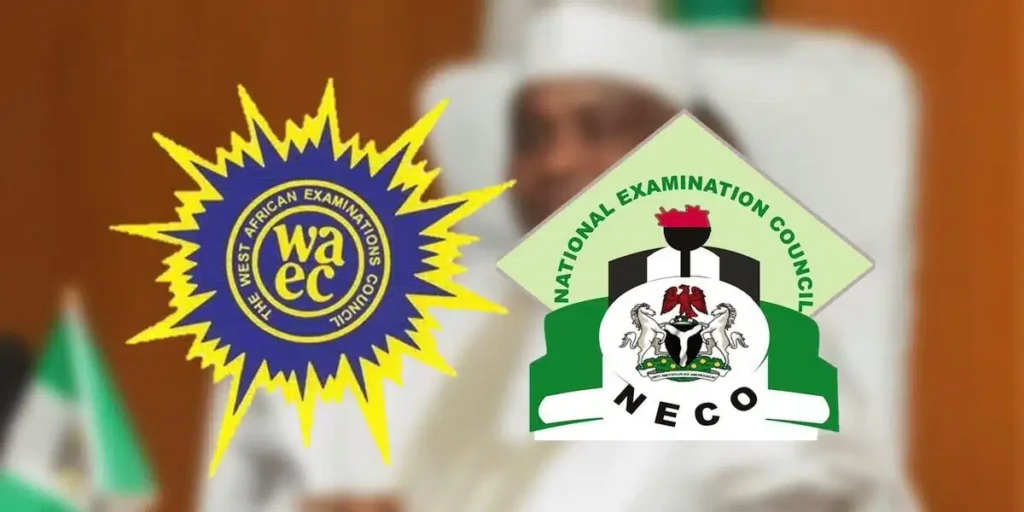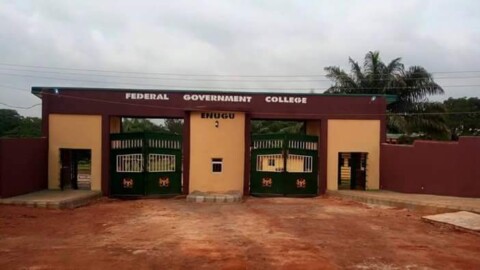The Federal Government has announced plans to fully adopt Computer-Based Testing (CBT) for the conduct of the Senior School Certificate Examination (SSCE), starting with objective papers in 2025 and transitioning completely, including essay papers, by 2026.
The Minister of Education, Dr. Tunji Alausa, made the disclosure on Tuesday in Abuja while monitoring a pilot CBT SSCE conducted by the National Examinations Council (NECO) at Sascon International School, Maitama.
Commending NECO for the seamless execution of the pilot test, Alausa revealed that future school-based SSCEs will no longer be held within schools but will instead be conducted at designated CBT centres across Nigeria—both private and publicly owned.
He said, “WAEC and NECO exams are school-based exams being conducted in their schools. No, we will move away from that. It is going to be like JAMB exams conducted at CBT centres. We have thousands of these centres nationwide, and they will be used.”
According to Alausa, most schools do not possess adequate facilities for CBT. However, the country has enough private CBT centres that have invested heavily in infrastructure, and integrating them into the examination system will expand the value chain, create jobs, and foster local entrepreneurship.
“These entrepreneurs have invested billions of naira. We should develop a new economic value chain. This creates jobs. You see a lot of computers, hardware, and software. And importantly, these are homegrown tech solutions. We should be proud of what we have,” he stated.
He praised NECO for its readiness to embrace the new format, highlighting the pilot exercise as a demonstration of capacity and commitment.
“This is the first time NECO is conducting a CBT for its annual O-Level exams. When we decided to move to CBT, many thought it was impossible. But today, we’ve seen it’s achievable. We must stop the plague of exam malpractice—leaked questions and cheating—and CBT is one way to fight that.”
The Minister also confirmed a phased approach: by November 2025, NECO and WAEC objective papers will be conducted via CBT, and by 2026, all sections of the exams—including essay components—will fully adopt the format.
Meanwhile, NECO Registrar, Prof. Ibrahim Dantani Wushishi, assured the public that the exam body is prepared for the transition, despite some infrastructural limitations in remote areas. He called on state governments to support the rollout by investing in CBT infrastructure.
He added that CBT will reduce malpractice and improve the credibility of certificates, which are already globally recognised. “We’re ready to use any medium to conduct exams. Where infrastructure exists, we will conduct CBT. We call on state governments to help fill the gaps,” he said.
Wushishi also disclosed that 1,367,210 candidates registered for the 2025 SSCE—the highest figure ever recorded. Of these, 685,551 are male, while 681,300 are female. Kano State had the highest number of registered candidates (over 137,000), while Kebbi recorded the least (just above 5,000). The Nigerian International School in Jeddah, Saudi Arabia, registered eight candidates—the lowest from any single centre.
Also speaking during monitoring activities, Senator Ekong Samson, Vice Chairman of the Senate Committee on Education (Basic and Secondary), pledged the National Assembly’s support for the digital transition.
“We are living in an age of technology. Nigeria must stay aligned with global educational standards. As legislators, we will ensure that this transition is seamless,” he said.
Chairman of the House Committee on Basic Examination Bodies, Hon. Oboku Oforji, who led a separate monitoring team to the Federal Government Boys College, Apo, applauded NECO’s efforts and pledged continued legislative oversight.
“NECO is important to us. We are proud of what they are doing under the leadership of Prof. Wushishi, and we hope they maintain this standard,” he said.





